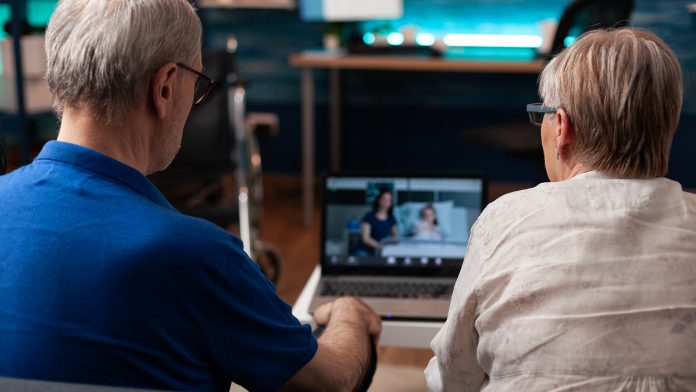
NHS virtual wards successfully treated over 100,00 patients last year, helping to free up thousands of hospital beds for the most in-need patients.
The aim of NHS virtual wards is to provide hospital-level care from home, creating valuable hospital space for the patients who need it the most. There are over 340 NHS virtual wards across England, with 58 new wards opened since January 2023.
Patients on the NHS virtual wards are treated by a team of healthcare professionals with a diverse range of expertise. Patients on virtual wards can also access a range of physical tests and treatments such as blood tests, prescription medicine and intravenous drip fluids.
Patients can still receive personalised care
Each patient on a virtual ward is reviewed daily by the clinical team, which can take place via a video call or a home visit. Some NHS virtual wards use innovative technology, such as apps and wearable devices that enable clinical staff to check on patients and monitor their recovery.
The NHS virtual ward programme is provided by the Frimley Health Foundation Trust. A total of 83% of patients who take part in the programme avoid hospital admission. In January 2023, the NHS announced a new goal of treating 500,000 patients monthly using virtual wards as part of the urgent and emergency care recovery plan.
Several other new measures aimed at reducing pressure on the NHS and reducing wait times were outlined in the plan. These included an expansion of community falls and frailty services, more community response teams and more physical hospital beds.
NHS virtual wards can reach a vast number of patients
“The advantages of virtual wards for both staff and patients have been a real game-changer for the way hospital care is delivered, and so it is a huge achievement that more than 100,000 patients have been able to benefit in the last year alone, with the number of beds up by nearly two-thirds in less than a year,” said Professor Sir Stephen Powis, NHS national medical director.
“With up to a fifth of emergency hospital admissions estimated to be avoided through better supporting vulnerable patients at home and in the community, these world-leading programmes are making a real difference not just to the people they directly benefit but also in reducing pressure on wider services,” he continued.
Research has shown that many patients benefit from being at home and in the company of friends, family, and pets. Evidence suggests that remaining at home is better for the physical health, mental wellbeing and overall recovery rate of certain patients.
“People yearn for normality and the comfort of home, yet when they get home, they may become worried. With our virtual ward programme, we can do everything that would happen in a hospital ward. We take observations every six hours to identify any issues, and we can even carry out ECGs at the patient’s home. It has truly transformed how we deliver care,” concluded Nurse Nisha Jose, clinical team leader at Mersey Care’s Clinical Telehealth Hub.










